01:58
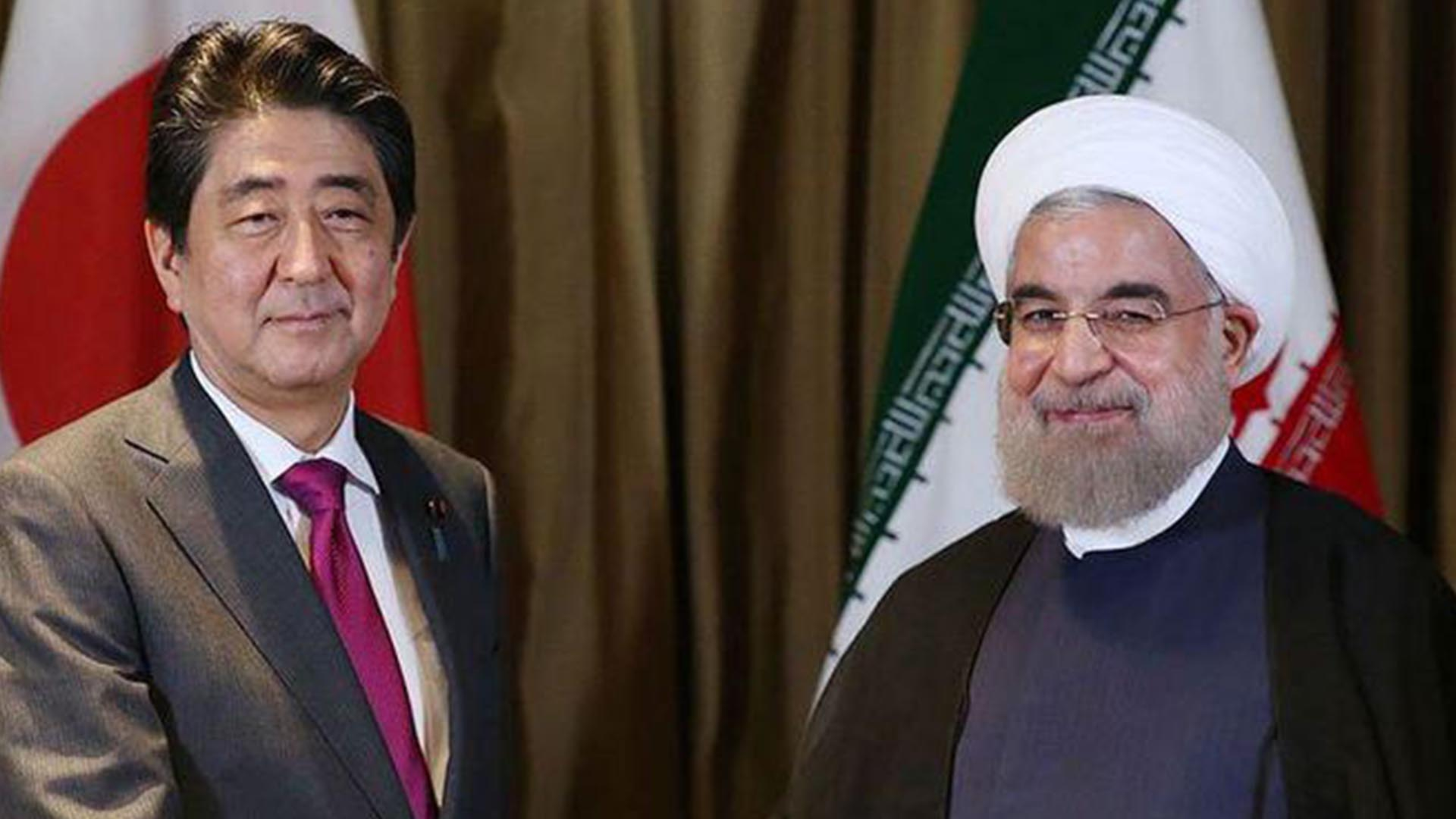
Iranian President Hassan Rouhani will start his "intense" visit to Japan on Friday, marking the first trip to the country by an Iranian president in nearly 20 years.
The one-day visit comes as Iran faces maximum pressure from the United States and a wide array of plots to isolate it internationally, Iran's official IRNA news agency quoted Deputy Foreign Minister Abbas Araghchi as saying on Monday.
Iran also said it's a "natural" trip following Prime Minister Shinzo Abe's trip to Iran in June. It's also the first trip made by a Japanese prime minister to the country since 1978.
Aside from key topics like the 2015 Iran nuclear deal and situation in both regions, two leaders have a mixture of motives for the coming Tokyo talks.
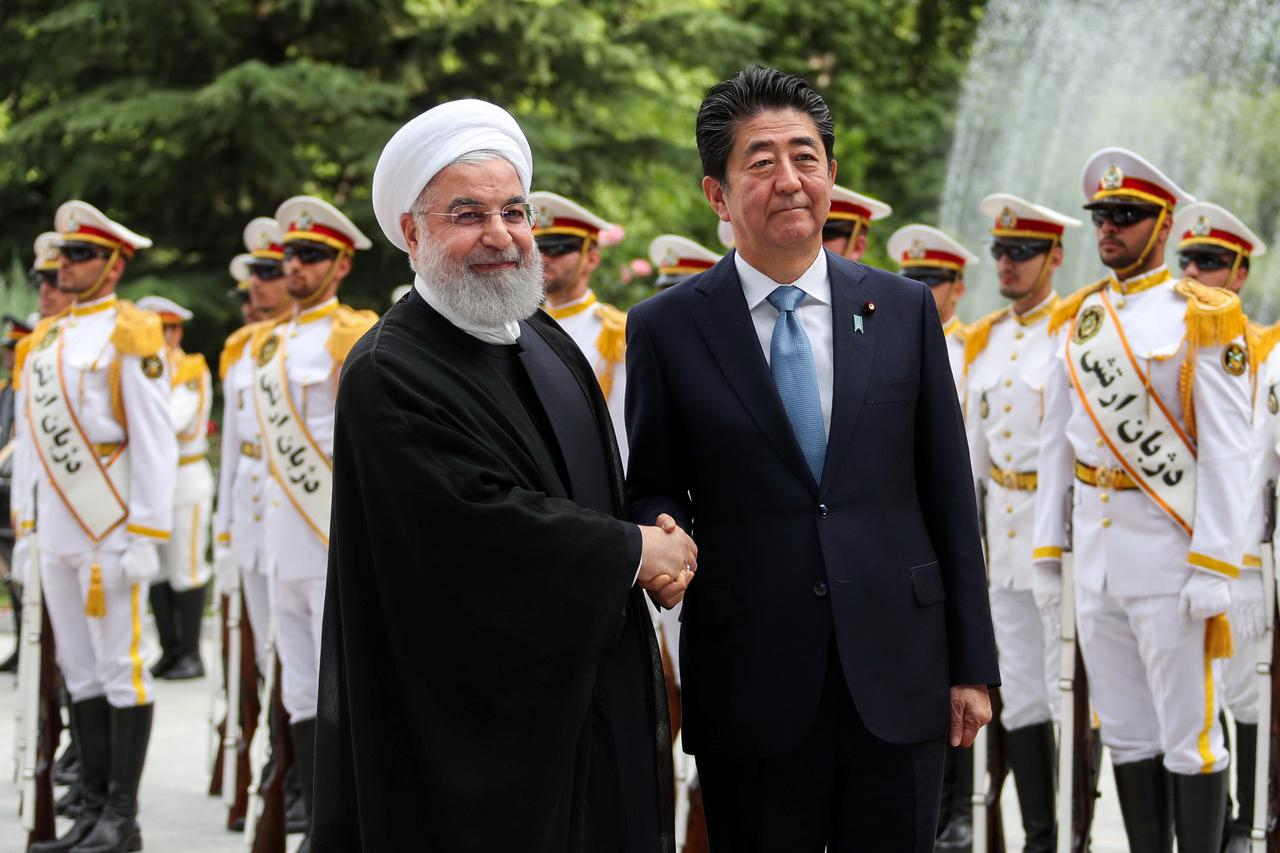
Iranian President Hassan Rouhani shakes hands with Japan's Prime Minister Shinzo Abe, during a welcome ceremony in Tehran, Iran, June 12, 2019. /Reuters Photo
Iranian President Hassan Rouhani shakes hands with Japan's Prime Minister Shinzo Abe, during a welcome ceremony in Tehran, Iran, June 12, 2019. /Reuters Photo
When explaining the intention behind the summit, Abe said his country wanted to play a greater role in resolving the nuclear dilemma between Tehran and Washington and easing tensions in the Middle East.
The Japanese prime minister is expected to urge Iran to stick with the 2015 deal during the summit. Japan is not a signatory of the Iran nuclear deal but a supporter of the deal and of stability in the Middle East as 80 percent of Japan's oil are imported from the region.
Japan had been a major buyer of Iranian crude but stopped purchases to comply with U.S. sanctions.
Japan's interests in the region go beyond oil. Sources said Abe would also likely use the opportunity to seek Iran's understanding regarding Japan's plan to send Self-Defence Forces (SDF) elements to the Middle East, including near the Strait of Hormuz.
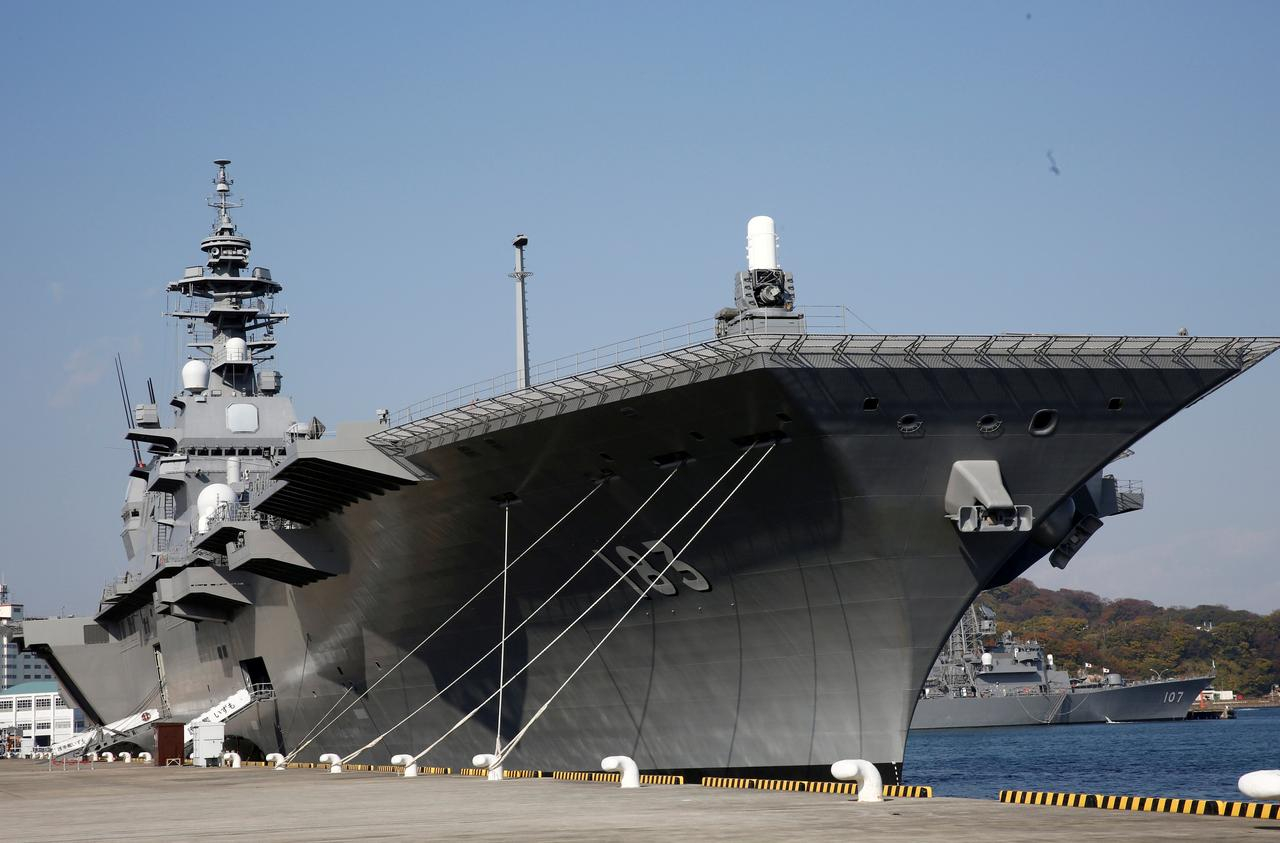
Japan Maritime Self Defense Force's helicopter carrier Izumo is seen at JMSDF Yokosuka base in Yokosuka, south of Tokyo, Japan, December 6, 2016. /Reuters Photo
Japan Maritime Self Defense Force's helicopter carrier Izumo is seen at JMSDF Yokosuka base in Yokosuka, south of Tokyo, Japan, December 6, 2016. /Reuters Photo
The SDF used to join the U.S.-led coalition to protect shipping in the Strait of Hormuz, but the government has decided to be independent, claiming the need to conduct necessary survey and research.
Japan's ruling Liberal Democratic Party's (LDP) coalition Komeito ally on Tuesday just green-lit a draft proposal for SDF to be dispatched to the Middle East.
Since the nation's pacifist constitution heavily restricts the activities of the SDF and specifically prohibits Japan from engaging in acts of war, Abe who is a staunch proponent of amending Japan's constitution to further loosen the constrains on SDF, are walking a fine line to increase SDF's footprint overseas.
Tehran has voiced opposition to U.S.-led alliance's military engagement in the Gulf and said it does not believe the presence of any foreign forces in the region would help boost region's stability, security or peace.
More than a simple return visit, observers pointed out Tehran wants to boost flagging economy by strengthening business ties with Japan.
One year since the U.S. President Donald Trump pulled out the 2015 nuclear deal and fully re-imposed its maximum sanctions against Iran, its economy has been severely undermined.
According to the IMF's World Economic Outlook report in October, the impact of sanctions will contract Iran's economy by 9.5 percent in 2019.
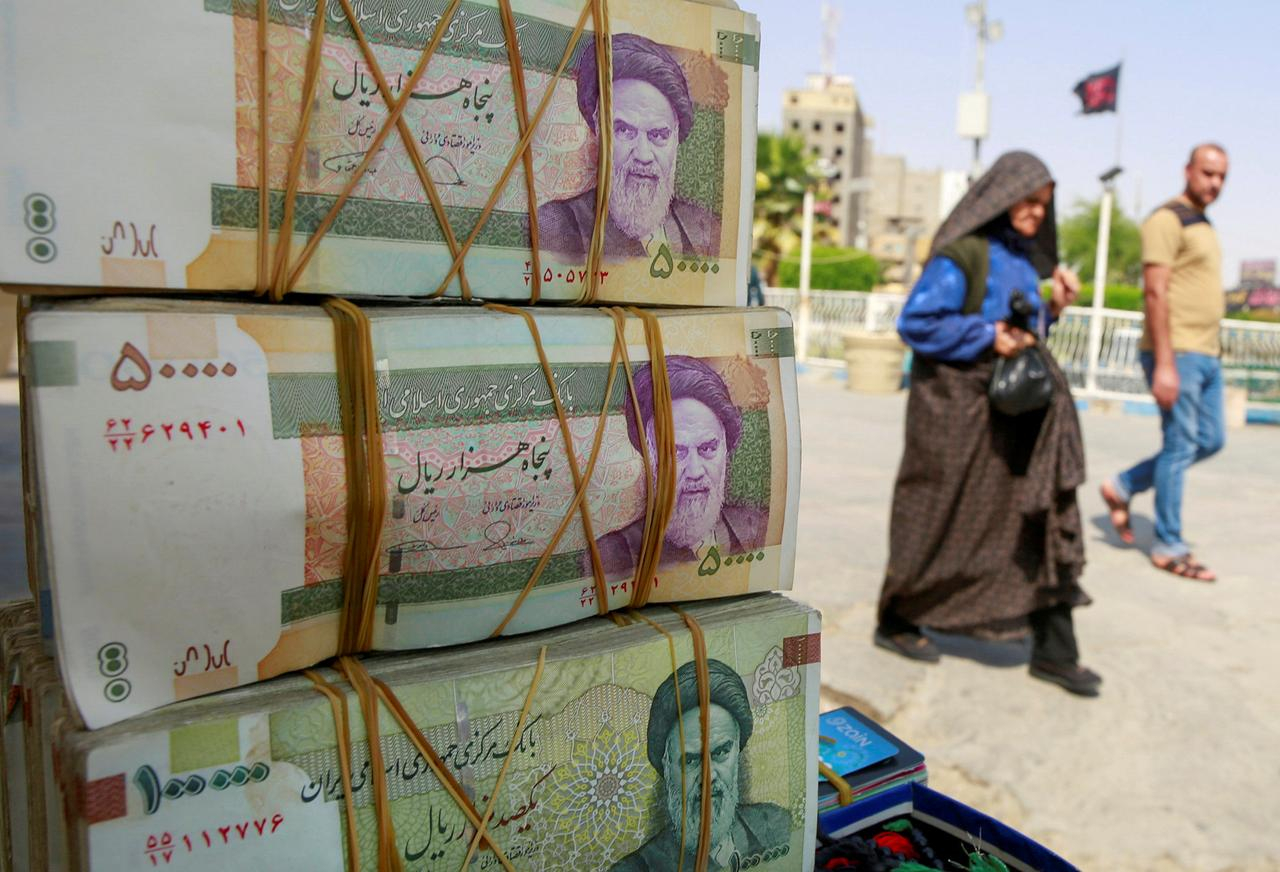
Iranian rial currency notes are seen at a market in the holy Shi'ite city of Najaf, Iraq September 22, 2019. /Reuters Photo
Iranian rial currency notes are seen at a market in the holy Shi'ite city of Najaf, Iraq September 22, 2019. /Reuters Photo
Meanwhile, protests and violence have recently erupted in a number of Iranian cities following gasoline price hikes.
Iranian government spokesman Ali Rabiei said discussions between the leaders would focus on "expanding economic relations" between the two countries.
Given the Europeans inability to make "economic guarantees" to Iran amid U.S.-led sanctions, Tehran has shifted more its diplomatic focus towards Asia.
The coming trip to Japan is a practice of such "Look to the East" goal. Thus, as Japan also stands in Western camp, the visit can also break new ground on Iran's ties with the West.
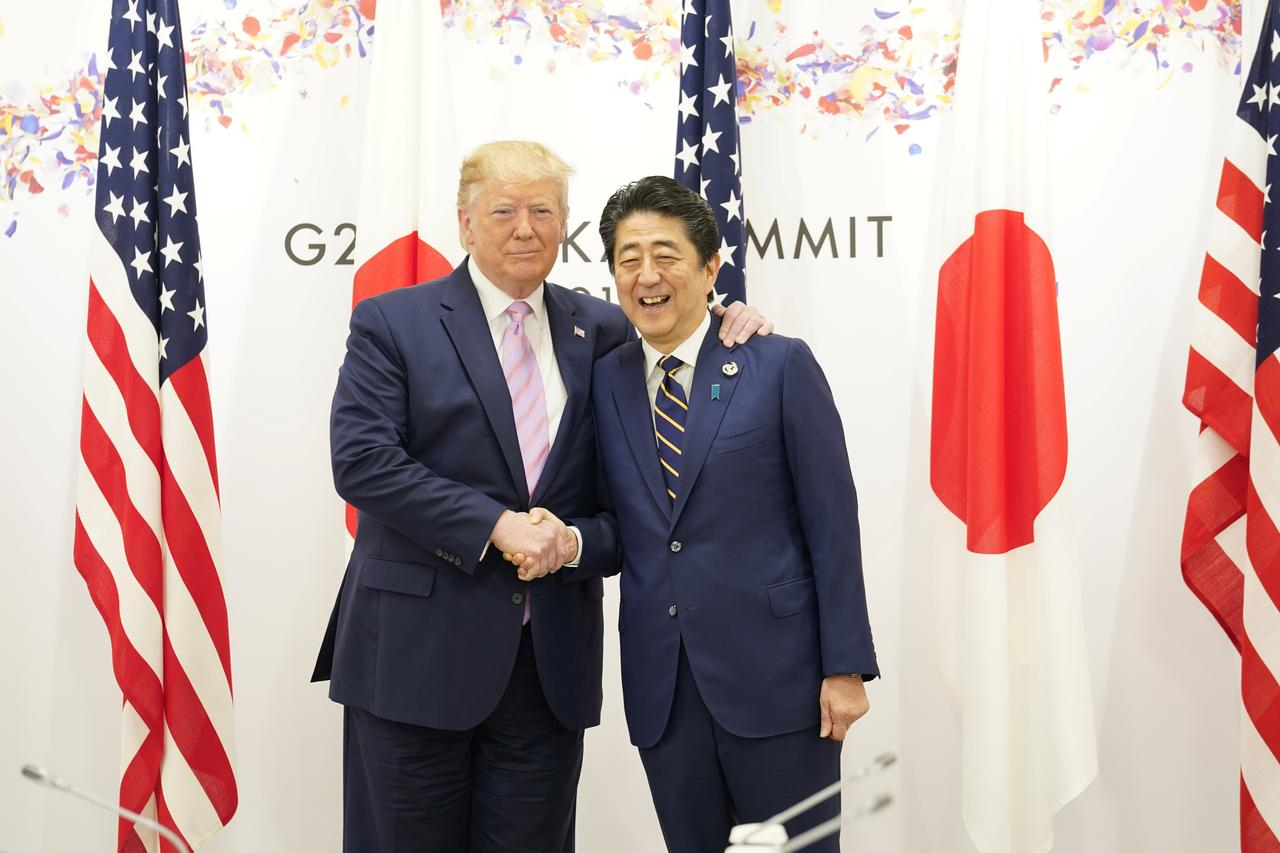
U.S. President Donald Trump shakes hands with Japan's Prime Minister Shinzo Abe during the G20 leaders summit in Osaka, Japan, June 28, 2019. /Reuters Photo
U.S. President Donald Trump shakes hands with Japan's Prime Minister Shinzo Abe during the G20 leaders summit in Osaka, Japan, June 28, 2019. /Reuters Photo
Referring to the current dilemma between Washington and Tehran, Abe last week said Japan wants to serve as a mediator between two sides. But analysts noted that due to the coming 2020 U.S. election and competitive positions between U.S. and Iran, Abe's enthusiasm of leading the mediation could be useless.
Rouhani's visit came after the U.S. and Iran swapped prisoners earlier this month in a rare act of cooperation between the long-time rivals.
Also, Washington's green light of Rouhani's visit to Japan resulted in the speculations that main purpose of the trip is to make way for U.S.-Iran negotiations.
Rabiei dismissed the idea, saying the trip "has nothing to do with issues such as negotiations with America."
"However, our Japanese friends usually convey messages or initiatives, which we welcome... and seriously examine," he also said.
The primary conflict now is that Iran requires the lifting of U.S. sanctions before negotiations, but the U.S. wants to have talks first. And Abe is unlikely to resolve this conundrum.
In addition, easing tensions with Iran before the 2020 election is no good for President Donald Trump's election campaign. He wants the votes from evangelicals and Jewish groups, which means his tough policy towards Iran is unlikely to change much in the next year.